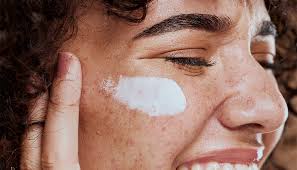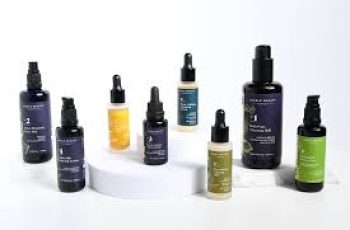
5 Ways Your Mood Can Affect Your Skin Health
Our emotions have a powerful effect on the body — and your skin, the largest organ, often reflects what’s going on inside.
Whether it’s stress, anxiety, or joy, your mood can influence how your skin looks and feels.
This mind-skin connection is real and backed by science. Dermatologists and psychologists have long acknowledged the complex relationship between your emotional state and your skin condition.
“When your mood shifts, it can show on your face — literally,” says board-certified dermatologist Dr. Doris Day, based in New York City. “And caring for your skin can also improve your mood.”
In fact, nurturing your skin can serve as a form of self-care. A skincare routine may calm your mind, reduce stress, and encourage mindfulness, especially during tough emotional times.
Let’s explore five powerful ways your mood impacts your skin and what you can do to stay balanced — inside and out.
1. Stress Triggers and Worsens Skin Conditions
Stress is one of the most common emotional states that affects skin. When you’re anxious or overwhelmed, your body reacts by releasing stress hormones like cortisol.
Cortisol is crucial for survival. It helps prepare your body to respond to danger. But when it’s overproduced, it can have several negative effects on your skin.
Increased cortisol can lead to more oil production. This may clog your pores and result in breakouts or worsen existing acne.
A 2017 study in Clinical, Cosmetic, and Investigational Dermatology found that high stress levels were linked to worse acne in female medical students.
When you’re stressed, the brain also produces CRH (corticotropin-releasing hormone). CRH stimulates oil glands, which further contributes to acne flare-ups.
Inflammatory skin conditions like eczema and psoriasis can become harder to manage under stress. These flare-ups are often tied to immune system changes caused by stress.
Eczema is known for dry, itchy, inflamed skin. The National Eczema Association notes that anxiety can trigger or worsen flare-ups.
Stress floods the body with cortisol and adrenaline, which may trigger inflammation and suppress immune responses. This contributes to worsening skin health.
The same applies to rosacea, a condition that causes facial redness, bumps, and sensitivity. Stress causes peptides in the nervous system to inflame and dilate blood vessels.
According to the National Rosacea Society, stress management can reduce rosacea symptoms. Two-thirds of respondents in one survey found relief this way.
Histamines, which are chemicals released during stress, may also trigger hives in sensitive individuals. These show up as itchy, red welts on the skin.
Stress is impossible to eliminate, but managing it effectively can limit its impact on your skin. Try breathing exercises, mindfulness, or gentle physical activity.
Dermatologists like Dr. Debra Jaliman suggest calming strategies like warm baths, soothing music, and massages to help your skin and mood at once.
2. Anxiety May Lead to Skin-Picking Behaviors
Anxiety doesn’t just trigger internal discomfort — it can manifest physically, including through skin-picking habits.
Some people develop a compulsive need to pick at their skin. This behavior is called dermatillomania or excoriation disorder, a mental health condition.
It’s considered a body-focused repetitive behavior and is closely linked to anxiety, obsessive-compulsive tendencies, and brain chemistry.
People with skin-picking disorder may obsessively scratch, squeeze, or pick at blemishes or healthy skin. This can cause wounds, scarring, and infections.
Dr. Anna Chacon, a dermatologist in Miami, frequently sees patients who pick at acne or other minor imperfections due to stress or anxiety.
One subtype, called acne excoriée, occurs when individuals pick at pimples, often turning mild acne into more serious and scarred lesions.
Research confirms that stress and anxiety can worsen these behaviors. In some cases, the habit can cause lasting emotional and physical scars.
Skin-picking often creates a harmful cycle. The person feels anxiety, picks at their skin, feels shame afterward, and then repeats the behavior.
Fortunately, skin-picking disorder can be treated. Effective options include cognitive behavioral therapy (CBT) and medications like SSRIs.
If you or someone you know struggles with this, consider consulting a mental health professional or visiting resources like SkinPick.com for guidance.
Mindfulness, deep breathing, journaling, and exercise may also help reduce anxiety and reduce the urge to pick at your skin.
3. Depression Disrupts Healthy Skin Habits
Depression affects more than mood. It often disrupts sleep, appetite, hydration, and self-care — all of which can take a toll on your skin.
When you feel emotionally low, it’s common to neglect your routine. Skipping skincare or forgetting to wash your face can lead to dryness, dullness, or breakouts.
People with depression may experience low motivation to maintain hygiene or grooming habits, including skincare. This can worsen underlying conditions.
Dehydration, nutrient deficiency, and poor sleep — all common during depressive episodes — also impact your skin’s texture, tone, and resilience.
Sleep is especially important. According to the Sleep Foundation, not getting enough rest can increase cortisol, causing inflammation and making skin appear tired.
Lack of sleep can also delay skin repair. This may lead to uneven tone, puffiness, and increased signs of aging like fine lines and sagging.
When someone starts treatment for depression and sees improvements in mood and energy, their skincare habits often resume and skin begins to improve.
Seeking help for depression can improve overall wellness. As your mental health strengthens, your physical appearance — including your skin — often benefits too.
If you suspect you or a loved one has depression, speak to a mental health provider for proper diagnosis and support.
4. Frowning Can Lead to Wrinkles Over Time
Repeated facial expressions leave a lasting mark. Chronic frowning, squinting, or furrowing your brows may contribute to premature facial wrinkles.
Over time, small muscle movements caused by negative emotions create permanent lines on the face. These are most common on the forehead and around the eyes.
According to the Cleveland Clinic, every time we frown or squint, our muscles contract. This repetition creates creases that deepen with age.
Dr. Day suggests being aware of your facial expressions. If you find yourself frowning often, try to relax your face or consciously smile more.
Smiling releases feel-good hormones like serotonin and also helps soften your expression, reducing the muscle activity that causes deep lines.
Day also teaches her patients a trick: lifting their ears back, even slightly, can mimic the muscle movement associated with smiling.
This small movement sends a signal to the brain that you’re calm and happy, which may help reduce stress and improve facial expression.
Of course, frowning is natural and sometimes unavoidable. But being mindful of it may help reduce the development of stress-related lines.
5. Positive Emotions Help Protect Your Skin From Stress Damage
Just as negative emotions like stress and anxiety can harm your skin, positive emotions may help keep your skin healthier and more resilient.
Being in a good mood can buffer the body’s response to stress. This means less cortisol, better immune function, and reduced inflammation.
Happy emotions also encourage the release of neurotransmitters like dopamine and serotonin, which can help stabilize your mood and reduce stress.
Although more research is needed, some scientists believe these chemicals may also have indirect benefits for the skin by regulating hormones and reducing inflammation.
Feeling calm or content may help skin maintain its barrier function, reducing breakouts, flare-ups, and sensitivity.
It also encourages better sleep, more balanced eating, and consistent self-care — all vital for skin health and regeneration.
Mindfulness, gratitude journaling, connecting with loved ones, and engaging in hobbies can elevate your mood and, over time, help your skin look better too.
In a sense, your skincare routine can be part of this process. Taking a few minutes each day to pamper your skin can be meditative and grounding.
This mind-skin loop is a two-way street: better mood improves skin, and improved skin boosts self-esteem and mental health.
Final Thoughts: Mind and Skin Go Hand in Hand
Your mood and skin are deeply intertwined. Negative emotional states like stress, anxiety, and depression can manifest through breakouts, sensitivity, and neglect.
On the other hand, nurturing positive emotions through mindfulness, self-care, and healthy habits can help your skin glow from within.
The takeaway? Prioritize your mental wellness as part of your skincare journey. The benefits extend far beyond what’s visible on the surface.
If you’re struggling with stress-related skin issues or mood disorders, don’t hesitate to reach out to professionals who can help.
Because when your mind feels better, your skin often follows suit.


